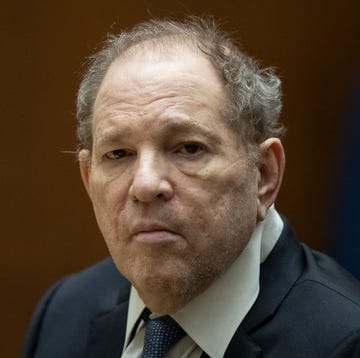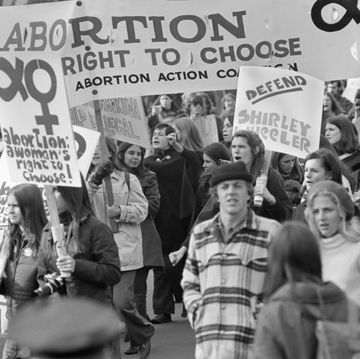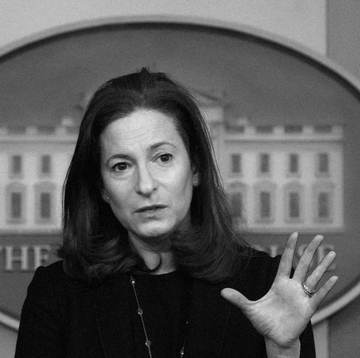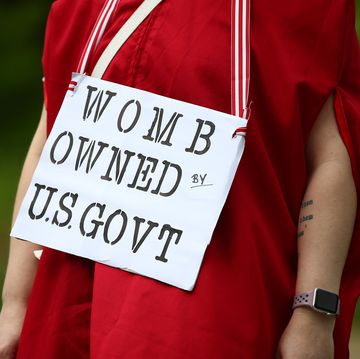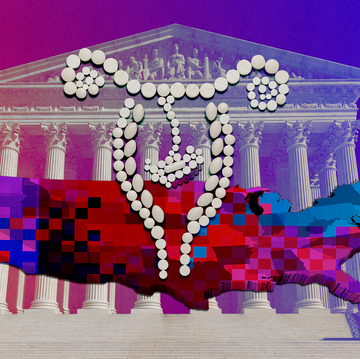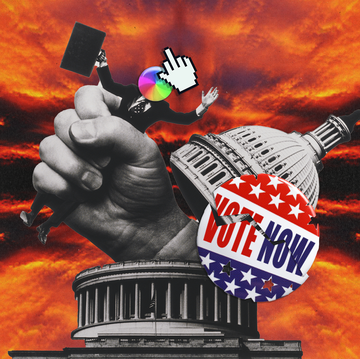On May 31, 2009, Dr. George Tiller was shot in the head as he served as an usher at his church in Wichita, Kansas. Tiller, one of the few American doctors who provided late-term abortions, was targeted by anti-abortion activists and mainstream conservatives alike, and a smattering of anti-abortion groups and individuals who picketed his facilities, stalked his family, bombed his clinic, and, years earlier, shot him in both arms. Tiller's death galvanized pro-choice activists, opening up a national conversation about abortion rights, violence, and the impact of extreme right-wing rhetoric. Five years later, no other abortion providers have been murdered. But other forms of anti-abortion violence continue unabated, inflammatory rhetoric persists even on the mainstream right, and some of the most effective tools at preventing violence are being slowly dismantled.
Scott Roeder, a longtime anti-abortion activist, said he shot Tiller because "preborn children's lives were in imminent danger." Roeder was arrested shortly after the killing and eventually sentenced to life in prison. During his trial, he tried to claim justifiable homicide; the judge did not allow that defense. Roeder admitted to stalking Tiller for a decade. Someone using the name Scott Roeder posted on the anti-abortion group Operation Rescue's website, "Tiller is the concentration camp 'Mengele' of our day and needs to be stopped before he and those who protect him bring judgment upon our nation." Operation Rescue denied that Roeder had anything to do with their group, but after Tiller's murder, police officers found the phone number of Cheryl Sullenger, Operation Rescue's senior policy adviser and a convicted abortion clinic bomb plotter herself, on the dashboard of Roeder's car. Operation Rescue and Sullenger again denied any knowledge of Roeder; they later revised that claim, conceding Sullenger gave Roeder information when Tiller was on trial for allegedly violating Kansas law by performing late-term abortions (Tiller was acquitted).
Nearly two years to the day after Tiller's murder, a man named Ralph Lang accidentally discharged his .38-caliber handgun in a room of a Madison, Wisconsin, Motel 6. Concerned the bullet may have struck someone — Lang had shot into a room across the hall — he told a desk clerk about the mishap, and the clerk called the police. Lang was arrested for reckless endangerment and toldofficers he was headed to a Planned Parenthood clinic the next day "to lay out abortionists because they are killing babies." A police search of his hotel room yielded a map of the U.S. with "some abortion centers" written across the top and dots in various states. Lang also told police he would have preferred to use a machine gun so he could "mow down" all the clinic employees.
"We were lucky with Ralph Lang," Vicki Saporta, the president of the National Abortion Federation, told Cosmopolitan.com. "We've been lucky before when bombs that were meant to maim and kill were built incorrectly and didn't go off, or when people turned in one of their family members who they thought was about to commit violence. But you have individuals who believe it's justifiable to murder an abortion provider still out there."
Since the late 1970s, anti-abortion extremists have committed eight murders, 17 attempted murders, 42 bombings, 181 arsons, 99 attempted bombings or arsons, 1,495 acts of vandalism, 100 butyric acid attacks, 663 anthrax or bioterrorism threats, 198 acts of assault and battery, 428 death threats, four kidnappings, 183 burglaries, and 550 acts of stalking. The number of hate mail and harassing calls totals more than 15,000. In just under four decades, there have been more than 33,000 arrests – a point of pride for many of the arrestees.
"I led the largest civil disobedience movement in American history," Randall Terry, an anti-abortion activist who founded Operation Rescue in the mid-1980s, told Cosmopolitan.com. "We had over 75,000 documented arrests from 1987 to 1994. To give you perspective on that, the civil rights movement from 1958 to 1968 had a little over 7,000 arrests. We literally had 10 times that number. I was and still am a die-hard fan of Dr. Martin Luther King."
Comparisons to the civil rights movement are commonplace in anti-abortion literature; so are comparisons between abortion providers and Nazis. In the 1990s, a website called The Nuremberg Files hosted the names, photos, addresses, and personal data of abortion providers in Wild West "Wanted"-style posters. When Dr. Barnett Slepian, an abortion provider in Buffalo, New York, was assassinated in 1998, the Nuremberg Files drew a line through his name. Today, some anti-abortion leaders say they want to see Nuremberg-style trials for abortion providers.
"I believe that [Tiller] was a mass murderer, and I believe that he tragically reaped what he sowed," Terry said. "I think that what Dr. Tiller deserved was a trial by a jury of his peers under the principles of Nuremberg. I do believe that Dr. Tiller deserves to be executed, but it should have been in accordance with the rule of law."
As it stands, the people being prosecuted in accordance with the rule of law are violent anti-abortion activists — although many of the people who commit crimes at clinics or harass doctors are never arrested or charged, and go on to offend again. Violence is routinely the culmination of a series of escalating actions. Lang, the attempted doctor-killer in Wisconsin, was a regular protester outside clinics and was arrested in 2007 for menacing doctors and nurses. Back then, he told police the "Bible states that anyone involved in abortion should be executed." Four years later, he tried to kill a doctor. Lang was convicted of attempted first-degree intentional homicide and sentenced to 10 years in prison.
Thanks to the Internet, many of the threats providers now receive are anonymous, and abortion foes are better able to organize and to share strategies and ideology across the globe; that ideology often filters into right-wing media and conservative politics, carrying more noxious ideas into the mainstream. Tiller was an illustrative example: The militant anti-abortion group Army of God, which advocates for the murder of abortion providers, had been deriding "Tiller the Baby Killer" for years online, juxtaposing Tiller's photo with Hitler's. Operation Rescue, which by the time of Tiller's murder was no longer affiliated with Terry, carried on the call, with several posts targeting "Tiller the Killer." Then Bill O'Reilly got on board, calling Tiller a "baby killer" on his prime-time show at least 24 times. The former Kansas attorney general and county district attorney Phill Kline repeatedly brought legal charges against George Tiller and repeatedly failed to win in court; his conduct was so clearly politically motivated that his law license was indefinitely suspended over it.
"When you have Bill O'Reilly saying Tiller's a baby killer every night on TV and various politicians repeating it, it helps create a fervor for someone like Scott Roeder to think he's justified," Saporta said.
In the wake of Tiller's murder, most anti-abortion groups took pains to distance themselves from Roeder, and they continue to offer the standard condemnations whenever a new act of violence is widely publicized. Politically astute anti-abortion groups, commentators, and politicians, Saporta said, bank on being seen as "mainstream" and reasonable, apart from the extremists who bomb clinics and shoot doctors — even while men who have been arrested 10 times for harassment at abortion clinics run for Senate on the GOP ticket, and even while supposedly credible anti-abortion organizations and individuals use the same rhetoric as the extremists.
"Bill O'Reilly thinks he's mainstream," Saporta said. "Those legislators think they're mainstream. You had Phill Kline — he was an elected official. They were all getting in on the action. The mainstream pro-life movement does nothing to help curb the violence. They pay lip service to it and then go on with their rhetoric about how abortion is murder. They don't work with law enforcement; they do absolutely nothing except say, 'Oh, gee, we don't believe in that.' And yet the rhetoric they use, they wink and nod, and they do nothing proactive to make sure that violence is no longer a tactic anybody thinks is justifiable or appropriate."
Terry neither winks nor nods. He says bombing a clinic "is not an immoral act," because "if someone could have burned down Auschwitz to keep Jews from being killed, they would be considered a hero today." But, he says, destroying property is one thing; killing abortion providers is another, and while he thinks there are solid philosophical arguments in favor of killing doctors, he believes the state should be the one doing the killing, after a trial. Terry says he is personally committed to nonviolence even against brick-and-mortar facilities like abortion clinics, although that commitment "is tactical and not simply ethical." That is, he doesn't choose nonviolence because it's the right thing to do; he chooses it because violence tends to give the anti-abortion movement a bad name.
"I'm not going to blow up an abortion mill," Terry said. "But I don't condemn the action."
Terry wants the laws to change as much as he wants to put abortion providers out of business. In his opinion, doctors should be jailed or executed as well as, eventually, women who have abortions. (For now, he believes women who terminate pregnancies are usually victims of insensitive boyfriends and predatory doctors; after abortion is outlawed for a while, though, they won't have any excuse.) Many other pro-lifers agree on the doctor-jailing but hesitate at the suggestion that women who terminate pregnancies should also face legal consequences. According to Terry, that's less about their beliefs and more about good PR.
"Much of the pro-life movement is wracked by fear, and they are afraid of looking politically incorrect or insensitive," he said.
The fight today is as much in the courts as it is on the streets outside clinics. After a wave of anti-abortion violence in the early 1990s, pro-choice groups began strategizing ways to better protect providers and patients, and in 1993, Colorado passed a "buffer zone" regulation, which allowed protesters to continue picketing abortion clinics while clearing a way for doctors, employees, and patients to enter and exit. Several other states followed suit.
But now a buffer law in Massachusetts is under review by the Supreme Court and may be overturned. Clinic employees and abortion rights groups say losing buffer zones will be another blow to patient safety. Anti-abortion groups say the zones infringe on their rights to free speech.
"Anti-abortion violence is real, and it continues to be a problem. Buffer zones are one tool that has worked," Saporta said. "We need to maintain the ability to enact them where they are necessary."
According to a clinic survey conducted by the National Abortion Federation, 92 percent of clinic employees fear for their safety or the safety of their patients; more than 80 percent have contacted law enforcement because of security and safety concerns. And more than half of facilities that instituted buffer zones saw a decrease in criminal activity near the clinic.
With the potential demise of buffer zones looming, abortion clinics shuttering across the country, and more anti-abortion laws proposed and passed in the past three years than in the previous decade, the anniversary of Dr. Tiller's murder elicits somber and worried reflections from abortion providers and women's health advocates.
"Dr. Tiller's murder is a reminder of the intimidation and harassment that abortion providers face every day from opponents of safe and legal abortion," Planned Parenthood president Cecile Richards said in a statement. "On this day, our thoughts and prayers are with his family, those who knew him, and the women and families across the country who were able to turn to him for needed care."
One person who isn't morose is Terry. Tiller, he says, "was every bit as vile as Dr. Mengele. And his name, if he's remembered, will be a curse and will rot on the ashes of history."
After saying the Christmas Day bombing of a Pensacola, Florida, clinic was justified, comparing the anti-abortion movements to the good guys in the films Inglourious Basterds ("a morality play about the use of lethal force") and The Boondock Saints ("it's got crucifixes and these young boys blowing these Mafia guys away"), and finally taking credit for the religious conversion of Bernard Nathanson, an abortion provider-turned-anti-abortion-activist, Terry asks for (and receives) confirmation that his quotes will, in fact, appear in Cosmopolitan.
"27 sexy ways to blow your mind," he muses. "27 sexy ways to blow up an abortion clinic! What a title!"
RELATED:
Why Protest-Free Zones Around Abortion Clinics Are Essential6 Women on their Terrifying, Infuriating Encounters with Abortion Clinic ProtestersYour Unobstructed Access to Abortion Clinics Is at StakeA Male Escort's Perspective: What It's Really Like Outside an Abortion Clinic
Follow Jill on Twitter.
Photo credit: Getty Images

Jill Filipovic is a contributing writer for cosmopolitan.com. She is the author of OK Boomer, Let's Talk: How My Generation Got Left Behind and The H-Spot: The Feminist Pursuit of Happiness. A weekly CNN columnist and a contributing writer for the New York Times, she is also a lawyer.

